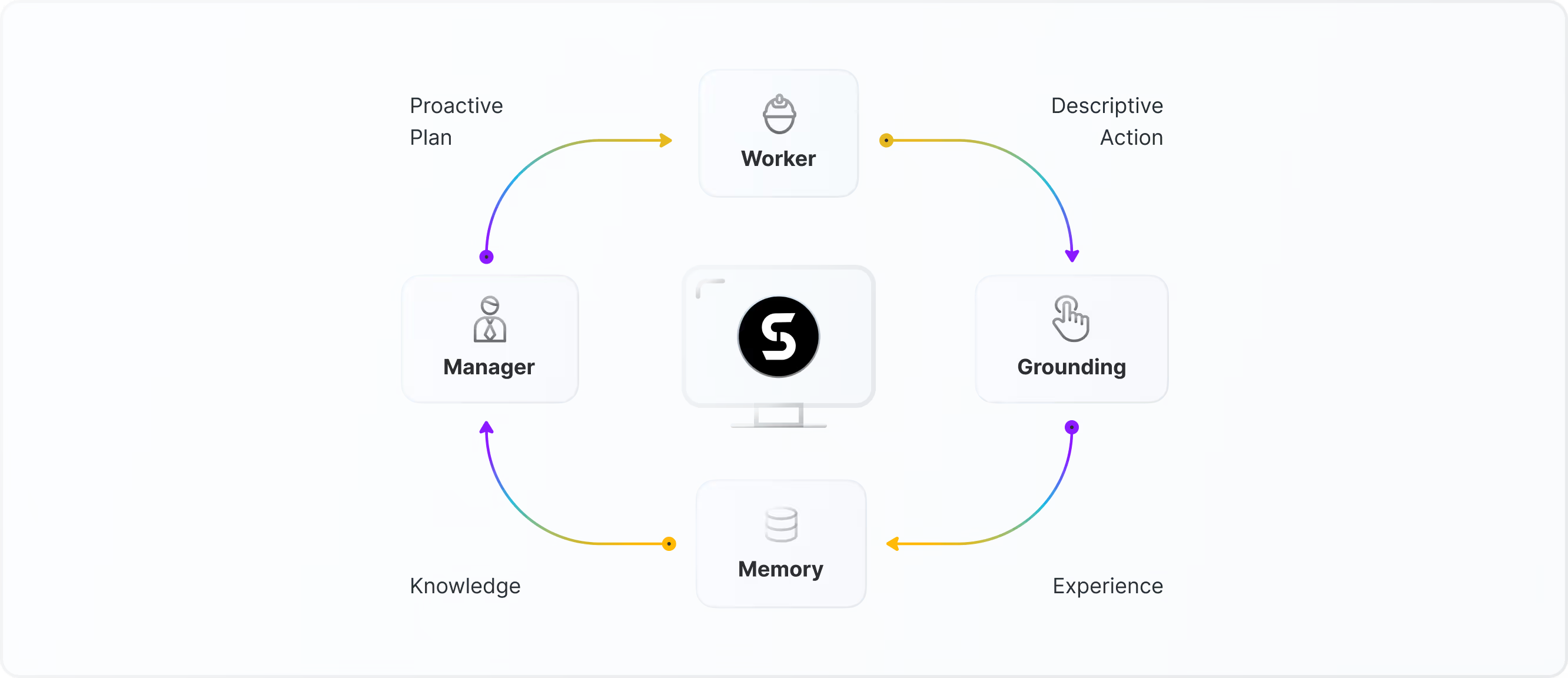Why AI need to use computers, like a human & why I started Simular
Hey! A few months ago, I gave a talk at Princeton University on my thoughts about agents and Simular. Figured I should put together a summary and turned it into a blog post.
State-of-the-Art Performance
My first job was as a research scientist at Google DeepMind, where a key part of my role involved collaborating with various Google product teams to identify opportunities for applying our cutting-edge AI technology. However, one Googler asked me a totally unrelated question that may have ultimately sparked my decision to leave DeepMind and start Simular.

So this Googler asks me, "Why do directors get executive assistants but I don't?"It sounds like they're just complaining about workplace perks, but they actually hit on something profound.
Think about all the mundane stuff you do every day:

We ALL do this stuff. The difference? Those fancy executives have actual humans to handle it for them.
The rest of us? We're stuck doing it ourselves.
But what if we ALL had assistants? That's the opportunity I see with AI.

The Mouse Movement Experiment That Blew My Mind
Quick question: How much of your workday do you spend just moving your mouse around?When we asked people this question, nobody had a clue. So we ran an experiment with 10 tech workers.
The average person spends 2.5 hours a day just MOVING THEIR MOUSE.
That's 30% of your workday! And that doesn't even count when your mouse is still or when you're typing. Seriously, think about that. One-third of your work life is spent pushing a little plastic puck around.

Why I Created Simular
This mouse experiment is exactly why I started Simular. Our mission is simple: create digital agents that can use computers like humans do, turning our computers into our assistants.We call it "Simular" because they're similar to humans... but not actually human. (See what I did there?)
But What About APIs?
Whenever I talk about this, someone always asks: "Can't you just use APIs to automate all this stuff?"
Sure, APIs are great... when they exist. But:
- Someone has to build those APIs first
- There are literally 3 new websites popping up EVERY SECOND (that's about 90 million new websites a year)
There's no way API development can keep up with that pace. We need something more universal – agents that can use a mouse and keyboard just like you and me.

Two Types of Thinking, Two Types of Agents
Here's where things get interesting. Humans have two thinking systems:
Fast thinking – The automatic, instinctive stuff we do without thinking (like driving when you're experienced)
Slow thinking – The deliberate, reasoning-based thinking (like solving a math problem)
The problem with today's AI agent discussions is that people focus on just one system:
- Some folks only talk about the reasoning capabilities (the "slow thinking")
- Others only care about automating repetitive tasks (the "fast thinking")
But the truly game-changing agents will need BOTH abilities.

How We're Building Agents at Simular
At Simular, we're creating agents that evolve like humans do:
This approach means:
- Your automation costs will drop dramatically
- Your agents will make fewer mistakes
- You'll actually trust the system enough to use it
The Bottom Line
Elite people have always had assistants. Now it's everyone else's turn.
With the right AI agents – ones that can think both fast AND slow – we can all reclaim those 2.5 hours a day we're wasting just moving a mouse around.
Wouldn't you rather spend that time on something that actually matters?
Ready to use your
computer in a Simular way?
Shares and organize your memory, and personalize your tasks.

